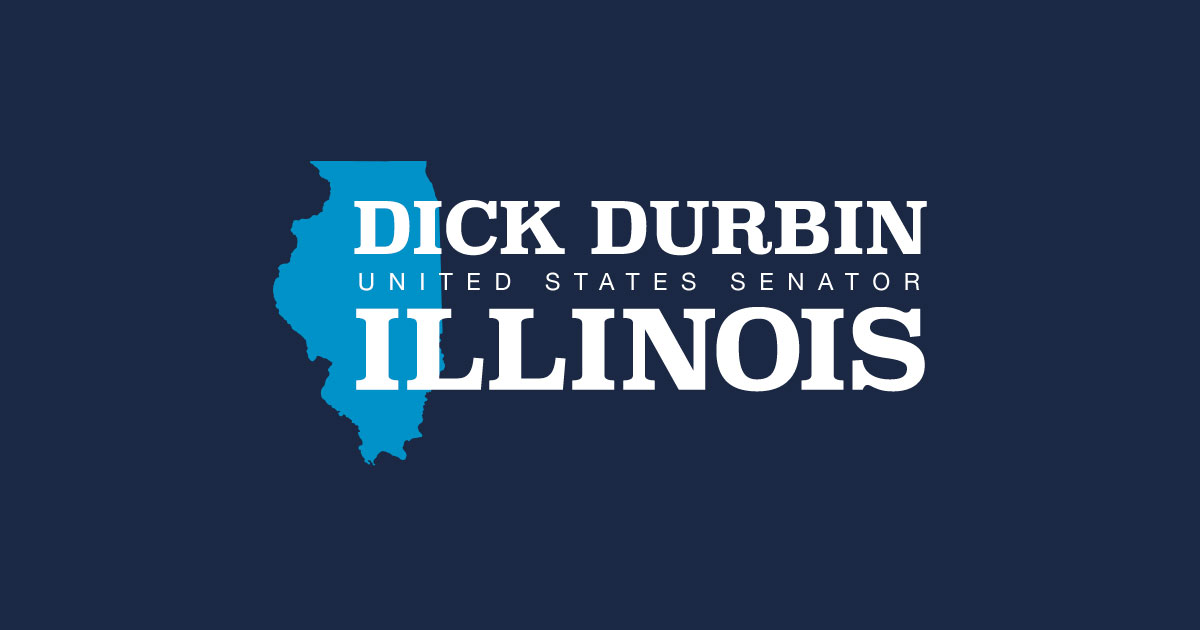Source: United States Senator for Illinois Dick Durbin
Durbin calls to cut gas prices, cap monthly cost of insulin, address excessive swipe fees imposed by Visa and Mastercard
WASHINGTON – In a speech on the Senate floor, U.S. Senate Majority Whip Dick Durbin (D-IL) today highlighted solutions Congress can implement to help American families save money. Due to inflation caused by Russia’s unprovoked war in Ukraine and rising COVID cases in China, every day Americans are feeling the brunt of rising prices for gas, groceries, and housing. During his speech, Durbin highlighted ways to cut gas prices, including implementing President Biden’s emergency fuel waiver allowing E15 to be sold across the country this summer, reducing the cost of insulin, and reining in the excessive swipe fees charged by Visa and Mastercard.
Durbin said, “Anyone who has filled up a gas tank in the last couple months has felt the sticker shock of Putin’s war in Ukraine… Normally, E15 isn’t sold in the summer. The White House estimates that allowing gas stations to sell E15 this summer will save Americans 10 cents a gallon. If we’re really serious about reducing the price of gas and reducing the power of Putin, we can do that by investing more in electric cars, or clean energy sources that don’t break the bank or the planet.”
Durbin also proposed capping the monthly costs of insulin at $35. Durbin is a cosponsor of Senator Raphael Warnock’s (D-GA) bill, the Affordable Insulin Now Act, to reduce the outrageous and increasing prices charged by the pharmaceutical industry for this lifesaving medication. There are 37 million Americans who have diabetes – and that number continues to rise every year.
Another issue that Durbin, Chair of the Senate Judiciary Committee, has been a leader on is addressing the excessive swipe fees imposed by Visa and Mastercard. During yesterday’s Senate Judiciary Committee hearing, Durbin questioned witnesses from Visa and Mastercard about rising interchange fees that lead to higher consumer prices for goods and services and add to inflationary pressures. It was the first hearing the Committee has held on the topic in 16 years.
Durbin said, “Visa and Mastercard control about 80 percent of the credit and debit card market. And every time a card with a Visa or Mastercard logo is swiped, Visa and Mastercard charge fees that take a cut out of the transaction amount. For merchants operating on tight profit margins–and that’s most merchants–these fees can add up to a big problem.”
Durbin explained the fee Visa and Mastercard require card-accepting merchant to pay the card-issuing bank is called an interchange fee. It’s usually charged as a percentage of the transaction, plus a flat fee—for example, two percent plus 10 cents per transaction. If you’re paying $100 in groceries on your credit card after the fees are deducted, the merchant gets $98 or less. During yesterday’s hearing, the CEO of Giant Eagle, a regional grocery store chain based in Pittsburgh, explained that these swipe fees can exceed their entire profit margin of one percent.
Durbin continued, “They [merchants] have to raise their prices to cover the high swipe fees required by Visa and Mastercard. And customers end up holding the bag. Swipe fees aren’t just annoying to the retailers—they are anticompetitive… the banks let Visa and Mastercard price-fix the fees for them. When fee rates go up, banks make more money every time people use debit or credit cards. That benefits Visa and Mastercard, who take their own cut – called a network fee – out of each swipe. They have an incentive to keep raising fees.”
To address this issue, Durbin highlighted various solutions, such as making clear to consumers on their monthly statement how much was deducted in swipe fees on each transaction, preventing Visa and Mastercard from hiking swipe fees up to an unreasonable level, and promoting competition by giving merchants more competitive options on each swipe.
Durbin concluded, “The bottom line is this: If we’re serious about reducing costs for American families, get serious about reining in swipe fees. Visa and Mastercard swipe fees are adding to the fires of inflation every day. Is that what we want in our economy? Is that what American families need at this moment in history? I think not.”
Last year, U.S. merchants paid out a staggering $77.48 billion in credit card fees and $28.06 billion in debit card fees imposed by Visa and Mastercard. And two weeks ago, Visa and Mastercard further increased many of their interchange fee rates despite bipartisan calls from Congress not to do so.
Video of Durbin’s floor speech is available here.
Audio of Durbin’s floor speech is available here.
Footage of Durbin’s floor speech is available here for TV Stations.
-30-
